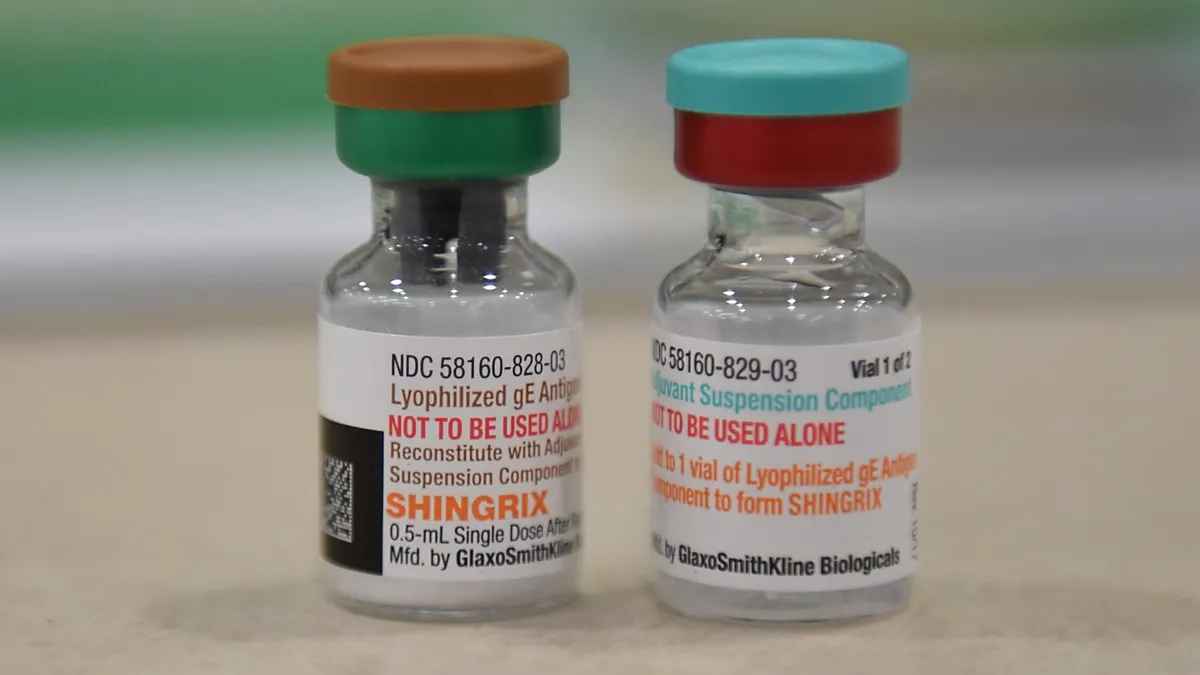
The shingles vaccine may hold significant promise in preventing or delaying dementia, according to compelling new data from a recent study published on April 23 in the journal JAMA. Researchers conducted an extensive analysis of electronic health records across Australia, revealing that older adults who were eligible for a free shingles vaccine exhibited a notably lower likelihood of being diagnosed with dementia over a follow-up period of 7.4 years compared to their slightly older counterparts who missed out on the vaccination program.
The findings of this study lend support to the viral hypothesis of Alzheimer's disease, which suggests that viral infections may play a role in the development of dementia, the most prevalent form of cognitive decline. This hypothesis specifically highlights the impact of herpesviruses, such as the varicella-zoster virus, which is responsible for chickenpox and shingles. If these results are validated through further research, they imply that an effective and cost-efficient measure for reducing dementia risk might already be available to the public.
Dr. Sten Vermund, dean of the University of South Florida College of Public Health, expressed in an email to Live Science that the strong protective effect observed in the study could likely be attributed solely to the shingles vaccine. This perspective emphasizes the potential implications of the research for public health strategies aimed at combating dementia.
When an individual contracts chickenpox, the varicella-zoster virus can remain dormant within the nervous system for decades, only to reactivate later as shingles, characterized by a painful rash. This reactivation capability is a defining trait of herpesviruses. The shingles vaccine is designed to enhance immunity and prevent the reactivation of the virus, thereby effectively reducing the incidence of shingles and its associated complications, which include long-term nerve pain, vision loss, and an increased risk of bacterial skin infections.
Earlier studies indicated that older adults who received the shingles vaccine had lower rates of dementia compared to those who did not. However, these studies had a significant limitation: individuals who opted for vaccination often exhibited healthier lifestyles, including better dietary habits and regular exercise, which also contribute to a lower risk of dementia. Therefore, while a correlation between shingles vaccination and decreased dementia risk was established, causation could not be definitively proven.
The gold-standard approach to assess whether the shingles vaccine genuinely protects against dementia would involve conducting a large-scale clinical trial with participants randomly assigned to receive either the vaccine or a placebo. However, such trials are typically expensive and may present ethical dilemmas, particularly in cases where the vaccine is known to be effective against shingles.
In a novel approach, the recent study utilized a scenario similar to a randomized trial. Senior author Dr. Pascal Geldsetzer, an assistant professor of medicine at Stanford University, explained that Australia's shingles vaccination program, which commenced on November 1, 2016, created an ideal environment for a quasi-experimental study. The program offered free shingles vaccinations to adults aged 70 to 79, resulting in a unique comparison between those who just missed eligibility and those who qualified based solely on their birth date.
The researchers analyzed data from over 101,200 individuals across 65 general medical practices in Australia, focusing on those born just before and after November 2, 1936—the cutoff date for vaccination eligibility. The study revealed a substantial difference in vaccination rates between these cohorts, with the eligible group having a significantly higher likelihood of receiving the vaccine. Over the 7.4-year follow-up, the rate of dementia diagnosis among the eligible individuals was found to be 1.8 percentage points lower than that of the ineligible group. Specifically, 3.7% of the eligible individuals were diagnosed with dementia, compared to 5.5% of those ineligible.
This protective effect was not observed in relation to other chronic conditions, such as high blood pressure, heart disease, or diabetes, suggesting that the shingles vaccine uniquely contributes to reducing dementia risk. Additionally, the analysis indicated no increase in diagnoses of other common chronic conditions or the use of preventive services among the vaccine-eligible population, reinforcing the notion that the observed difference in dementia rates is indeed driven by the vaccine.
Despite the promising results, Dr. Logan DuBose, co-founder of Olera.care, noted some limitations. He suggested that future studies could benefit from examining whether the vaccine's effects vary according to genetic backgrounds, such as the influence of the APOE4 gene variant associated with dementia. Understanding the underlying mechanism by which the shingles vaccine offers its protective effect against dementia remains crucial, as the current mechanisms are not fully understood.
One prevailing theory posits that the reactivation of the varicella-zoster virus may lead to brain damage through various pathways, including the accumulation of abnormal proteins and chronic inflammation. By preventing this reactivation, the shingles vaccine may theoretically mitigate such brain damage. Another hypothesis suggests that the vaccine could enhance immune system functioning in a way that slows the progression of dementia.
Moving forward, Dr. Geldsetzer and his research team are actively seeking private and philanthropic funding to initiate a formal clinical trial aimed at rigorously testing the shingles vaccine's ability to safeguard against dementia. This research could pave the way for new preventive strategies in the fight against dementia and improve the quality of life for many older adults.